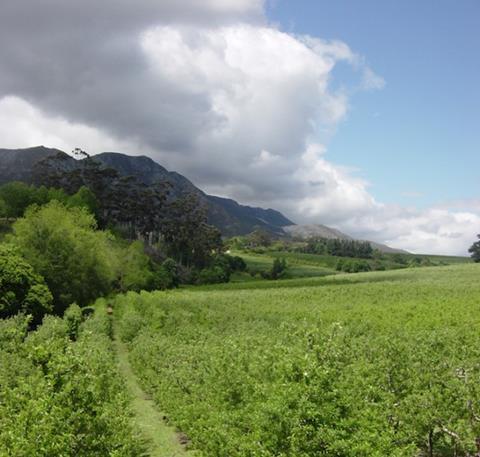
South Africa’s apple harvest is back on track after a disappointing 2014, but leading growers say this season will be a tough one in which exporters and growers will have to plan their strategies very carefully.
While the export apple crop will probably be slightly lower than the original forecast, it will still be 20 per cent higher than last year. The pear export crop is predicted to be slightly down on last year and will reach 15.8 million cartons compared with last year’s 16.3m.
Leading Elgin grower and veteran of many apple campaigns, Alastair Moodie, says despite a competitive market, there will still be very good opportunities for South African exporters in the UK market. “We are perhaps fortunate that European stocks of Gala are somewhat lower than those of some of the other varieties and we believe that we will have a good season.”
Moodie says climatically South Africa had a good growing season and consumers can look forward to excellent quality from South Africa. “This applies for Braeburn, Granny Smith and Pink Lady, all varieties doing very well in the UK market. We will also see more Kiku and Kanzi, both varieties doing very well in South Africa, and with them we look forward to exploring niche opportunities.”
Despite the fact that South African growers will probably not see the good markets of 2013 and 2014, they are still very fortunate to have a good spread of markets around the world, which should see them performing strongly. More than 50 per cent of South African apples are now sold in Africa, largely due to good growth in west and east Africa, backed by a very solid local market.
“In Europe though,” says Moodie, “the situation will be sensitive and will have to be handled well.” He points to a weaker euro compared with last year, problems with trade between Russia and the EU and the high stock levels as combining to present a number of challenges. The rise in the South African crop is mainly ascribed to a recovery in apple export volumes to normal levels after the damage caused to the 2014 crop due to unfavourable climatic conditions. South African apple and pear production is almost entirely located in the Western Cape region, with the Langkloof area in the Eastern Cape also making an important contribution.
Not surprisingly, the Western Cape government has singled out the fruit and wine sectors as industries which could contribute significantly to economic growth and job creation. Alan Winde, minister of economic opportunities in the Western Cape government, claims the government had a goal to increase the value of all exports from its current level of R16 billion (£892m).
“If we increase exports by only five per cent in certain products, we will increase the volume of produce by R432m (£24m). Larger volumes have the potential to create more employment, changing livelihoods for people in rural areas,” he says. “The fruit and wine industries are two of our key strategic industries. In a bid to maintain and grow their markets, we are supporting a range of initiatives. One of these is encouraging responsible practices within these industries. Where we fund ethical trade missions, both industries receive R1m (£56,000) each to further this campaign.”



